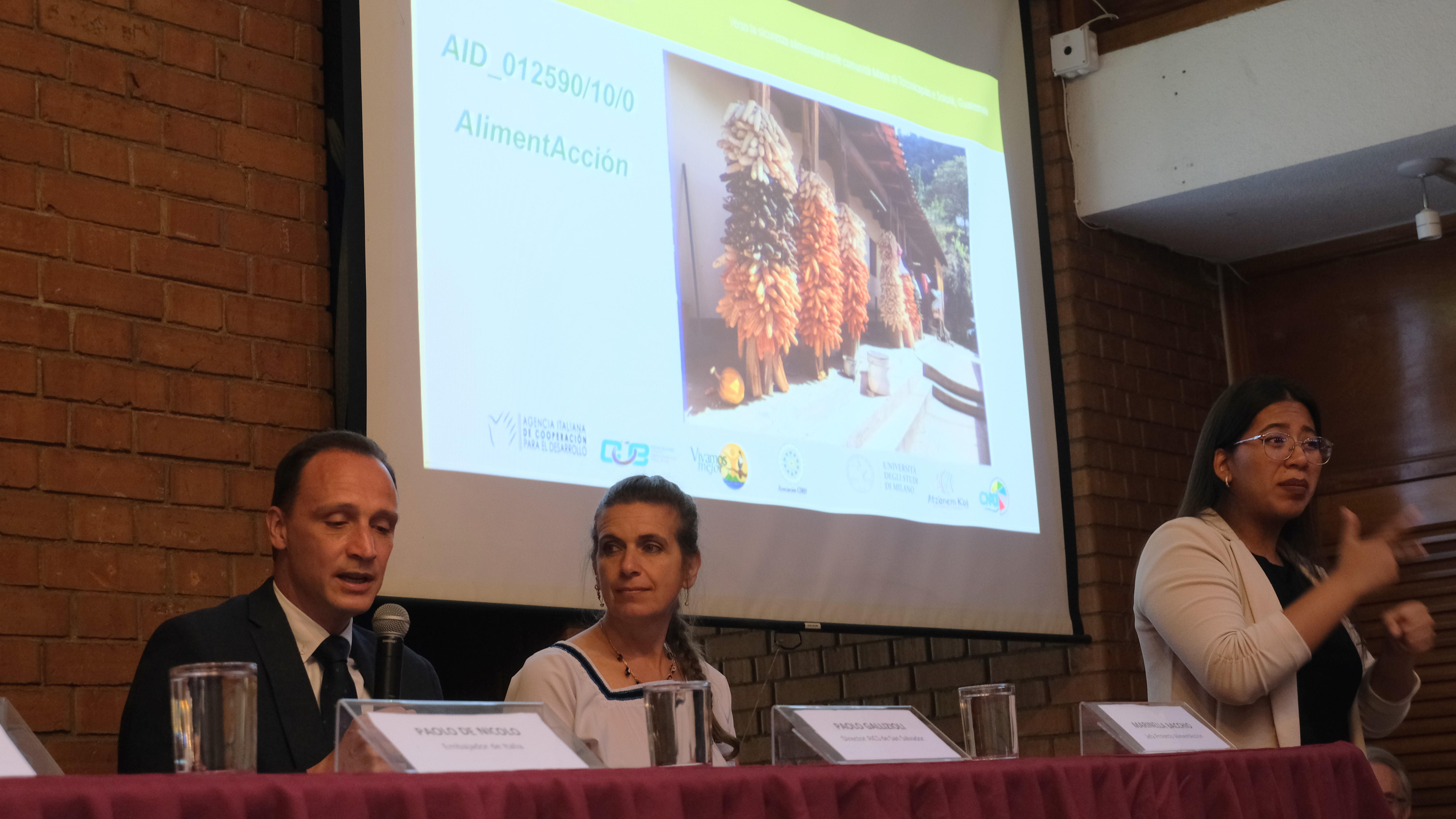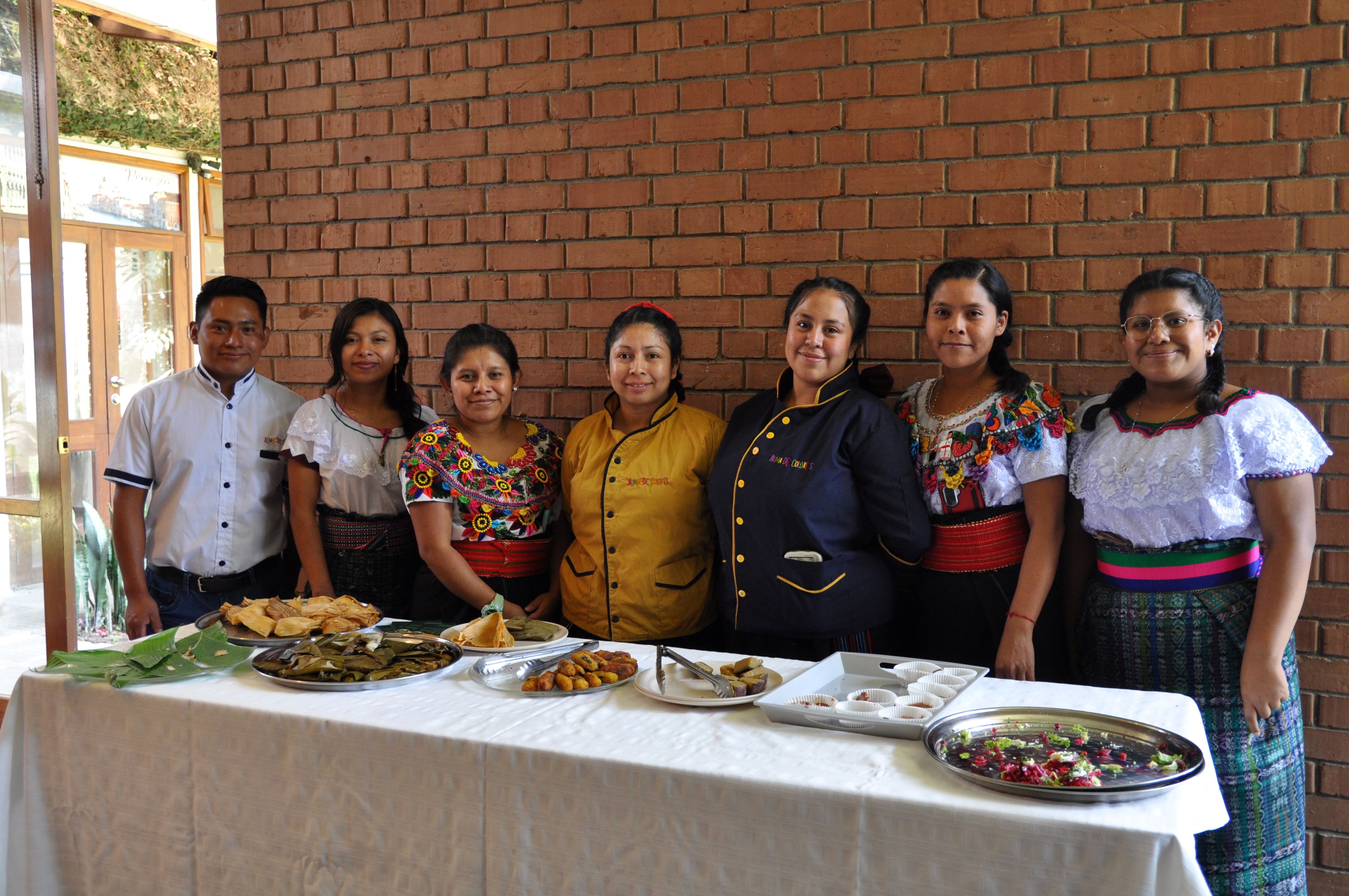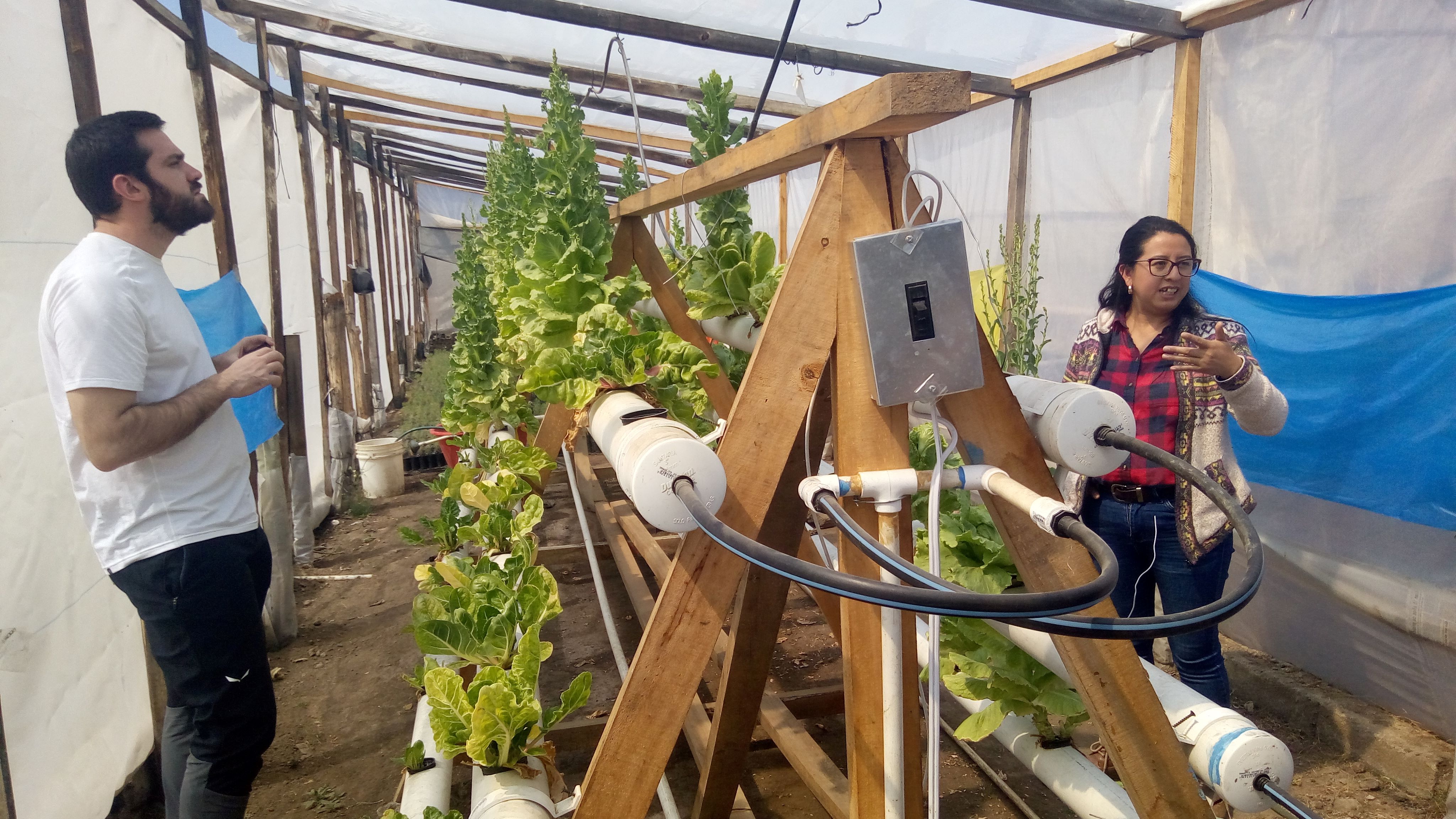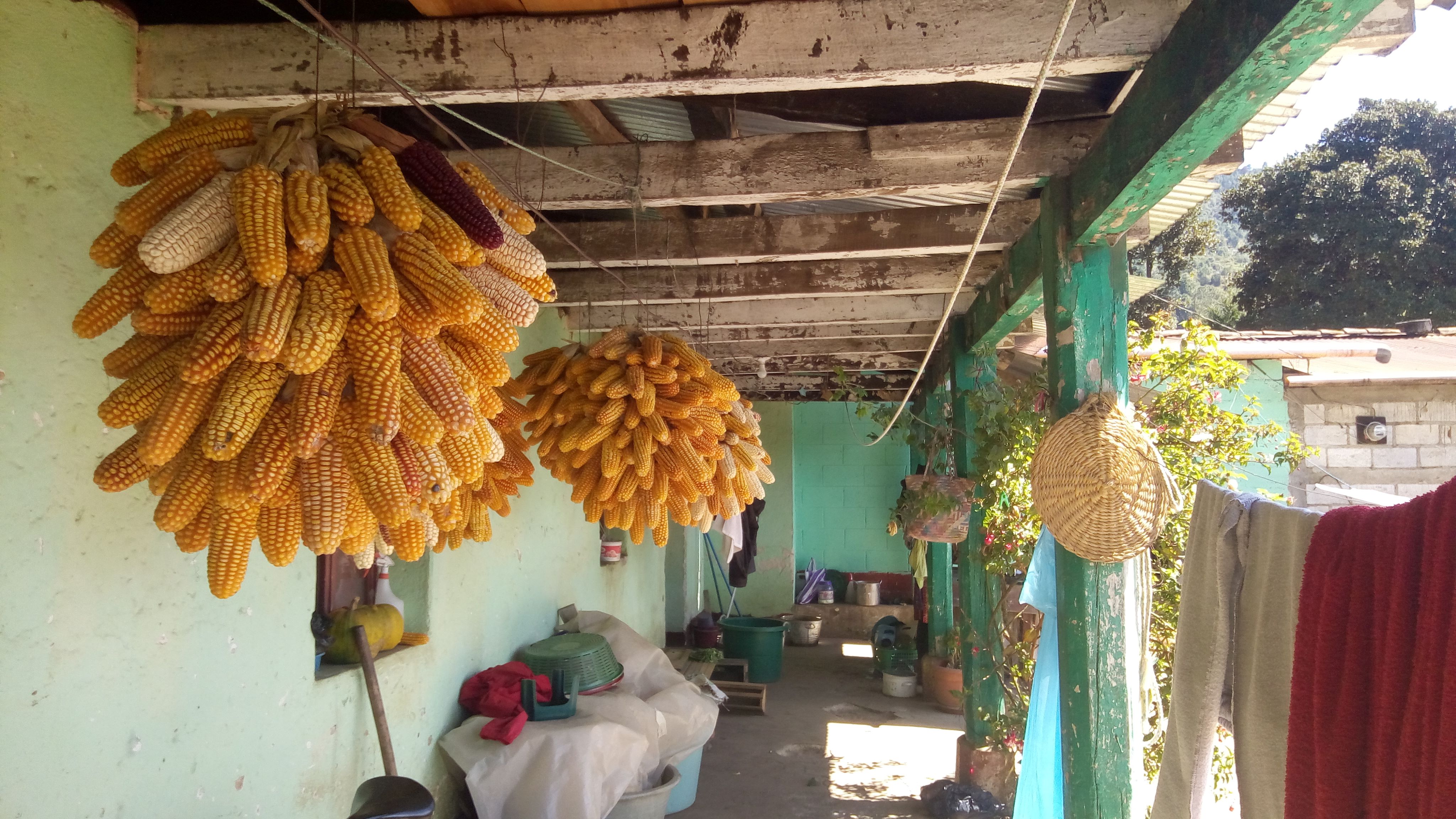On February 9th, at the Italian Cultural Institute in Guatemala City, it was held the press conference for the launch of the project “AlimentAcción – Towards food security in rural and indigenous Mayan communities, increasing availability, access , the consumption and adequate use of healthy, nutritious and varied food in families with high vulnerability to chronic malnutrition, with particular attention to women, children and people with disabilities“, funded by the Italian Agency for Development Cooperation (AICS) and managed by the Centro Orientamento Educativo Association (COE), in collaboration with the University of Milan, the Asociación de Cooperación para el Desarrollo Rural de Ovest (CDRO), the Asociación Vivamos Mejor and Atz’anem K’oj.
The event was also attended by the Italian Ambassador to Guatemala, Paolo De Nicolo, and the Director of the AICS Office in San Salvador, Paolo Gallizioli.
The project, with a budget of 1,748,530.00 € and a duration of three years, aims to put an end to hunger and help achieve food security in the rural and indigenous Mayan communities of the Departments of Totonicapán and Sololá in Guatemala, with particular attention to people with disabilities, women, children.
“With AlimentAcción, the Italian Cooperation once again promotes an intervention in favor of the rights of the most vulnerable people, which is one of the common priorities of Italy and Guatemala” commented Paolo Gallizioli. He also recalled how the commitment of the Italian Cooperation in the country supports five regional initiatives and one, AlimentAcción, is focused exclusively on Guatemala. AlimentAcción will promote the production and consumption of healthy, nutritious and biodiverse foods, applying agroecological practices and it will create an inclusive environment for women and people with disabilities, with the aim of strengthening their participation as change agents within their communities.



